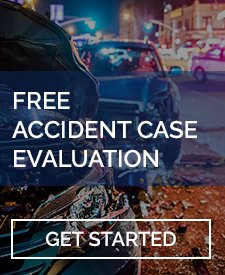Are many car accidents caused by drugs? A number are. Think about the warning signs on many medications. You can become sleepy or drowsy, your vision can blur, you become dizzy, your reaction time slows. Prescription drug-related car accidents are a real danger. If you’re on prescription drugs, you just need to know what you can and can’t do.
Patients often believe that such warnings apply to other people. Certainly, they won’t get into accidents caused by drugs. Yet no one who gets behind the wheel thinks they’ll get into an accident, or they wouldn’t get behind the wheel. Everyone thinks these warnings apply to others.
You may be a very responsible person, but that has no bearing on how prescription drugs can affect you. These drugs can often impact your motor skills, balance, hand-eye coordination, reaction ability, and even your capability to orient yourself in a space.
If you or someone you love was involved in a car wreck, contact the Florida car accident lawyers at the LaBovick Law Group.
What Prescription Drugs Can Cause Accidents?
There’s no complete list. That’s why each drug comes with warnings that you should heed. In general, the prescription drugs most likely to cause a car accident include:
- allergy medication
- anxiety medication
- antidepressants
- any drug with codeine
- cold medication
- diet pills
- pain relief medicine
- sleeping pills
- stimulants
- tranquilizers
There are additional drugs beyond these that can increase your risk of an accident. These are simply some of the most common you’ll encounter. Some are obvious: such as sleeping pills and tranquilizers. These are designed to make you drowsy and fall asleep.
Others are less so. Allergy medication and pain relief medicine can dull your senses and reactions. Even stimulants can make you overexcited and interfere with your focus when they work or can result in drowsiness when they don’t.
Legal Penalties
A Florida-drugged driving conviction can be serious. A first offense can result in up to six months in jail, between $500 and $1,000 in fines, and 50+ hours of community service. The driver’s license will also be suspended between six months and a year.
A second offense that occurs within five years of the first one will result in at least 10 days to 9 months in jail, between $1,000 to $2,000 in fines, and the driver’s license being revoked for a minimum of five years.
A third offense within ten years of either prior offense will result in at least 30 days to 5 years in jail, between $2,000 to $5,000 in fines, and the driver’s license being revoked for a minimum of 10 years.
These are extremely stiff and unforgiving penalties. They are not to be tested.
But I Have to Drive!
You still have a life to lead. A medication with a potential side effect doesn’t necessarily mean you shouldn’t drive at all. Consult your doctor about the full range of medications you take. Know about the potential side effects. Tell them about any that you experience. They can advise you on how to keep yourself safe as a driver.
Learn to recognize the side effects you experience and treat your limits as legitimate. Maybe you only feel drowsy sometimes. If you convince yourself you can push through it, you may wake up in the middle of an accident. Perhaps these are times to pull over, reschedule, or ask someone else to run an errand for you so that you don’t have to drive.
The more you know about how your body and mind react to medication, the more you can recognize when you’re good to go and when you’re not. Take advantage of options like public transit, carpooling, taxis, shuttle buses, and services like Uber or Lyft when possible.
It’s Not Just a Teenage Problem
Many older people imagine this is a problem for teenagers. They have more experience and are therefore more responsible, right? Yet the truth is that younger people often start with better response times and their bodies break down medication more quickly. They’re also less likely to be on medication in the first place.
More than 25% of fatal crashes that resulted from drugged driving were the result of a driver 50 or older. Elderly people are often over-prescribed or take their medication in the wrong amounts.

Beyond this, there are fewer tests to determine if someone’s on prescription drugs. It’s not like alcohol, where you can simply take a Breathalyzer test. Drugged driving is far harder to prove than drunk driving. For this reason, the number of prescription drug-related car accidents is very likely much higher than reported.
The facts hold up: this is a problem for all ages. It’s likely more of a problem than many realize.
Legal Help
Prescription drug-related car accidents are a major issue. If you’re injured by a driver who’s taking prescription medication, you may be entitled to compensation. You need the full range of facts, however. As mentioned, drugged driving is difficult to prove. Contact a Florida car accident attorney as soon as you’re able. You want to avoid wasting time in this circumstance.
It could be that the other driver shouldn’t be on the road, or should be taking precautions that they aren’t. They may injure someone else down the road if the prescription drug issue is not addressed. If nothing else, the financial impact on victims of accidents caused by drugs means that those victims are entitled to financial compensation. There’s no reason you should move forward without an experienced car accident attorney who can ensure you get what you’re owed.




